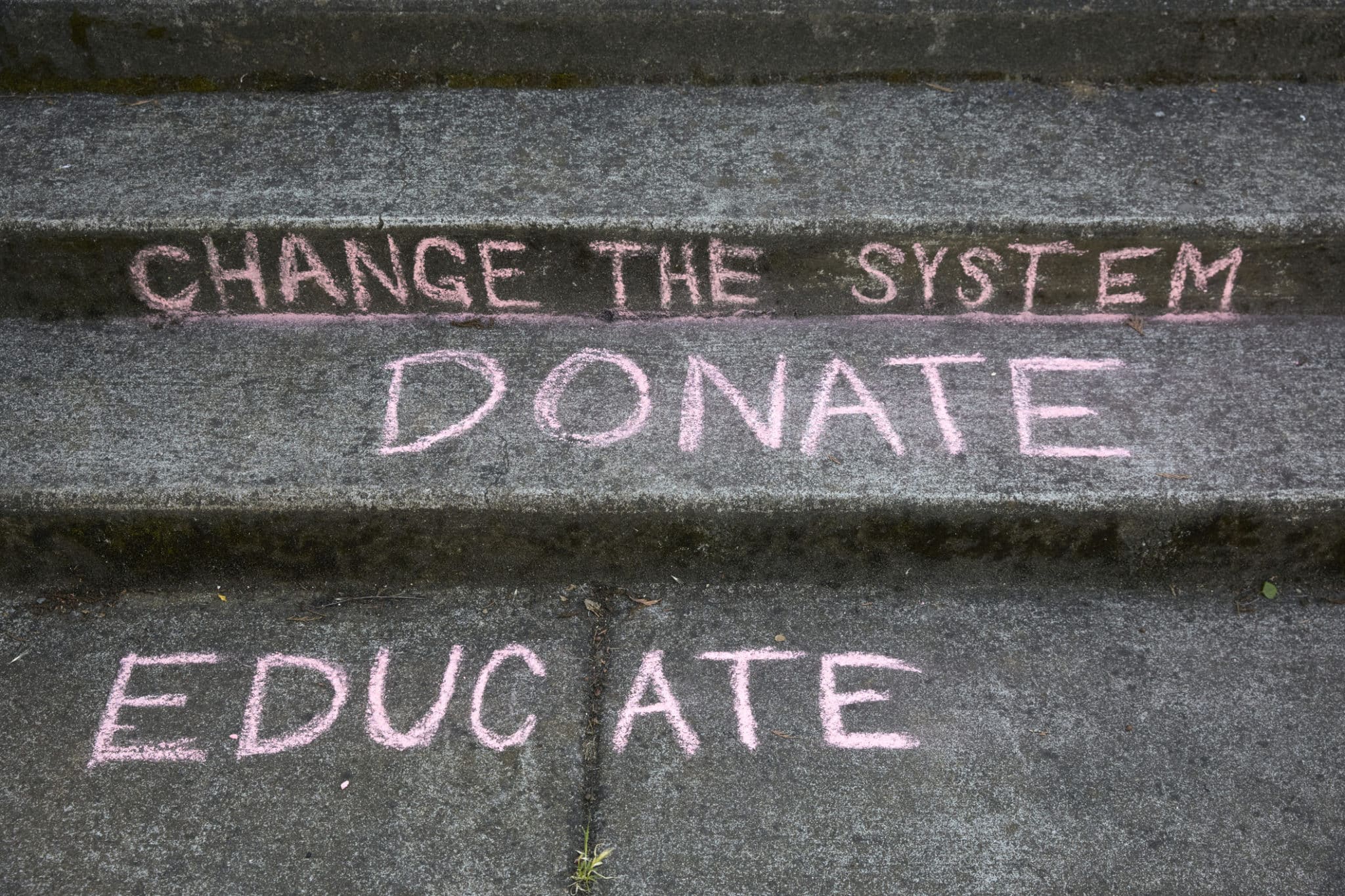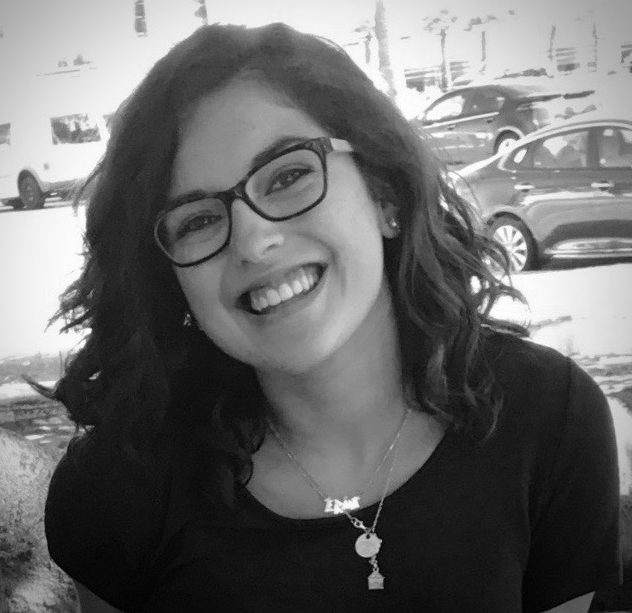
In an effort to combat hate and bigotry, allies have been marching, donating, uniting in solidarity on social media and signing petitions. While these are necessary steps, knowing what and how to argue also is crucial. To do so, education is key, and thankfully, there is a plethora of resources available, especially online.
During the school year, educational organization Facing History and Ourselves preps schools around the country with curricula. Karen Murphy, Facing History’s director of international strategy, told the Journal many lesson plans, videos, TED-style talks, poetry, art and articles are available on its website for middle and high-school students when they’re not at school.
“History is really important,” Murphy said. “I do think that one of the things that people have the opportunity to do right now is [think about] how much contemporary protests are legacies of the past and understanding what it means to inherit something … . [There are] events we sometimes treat as the property of victims, as if the Holocaust [only] belongs to the Jews and Trail of Tears belongs to Native people rather than saying, ‘This is our collective history, this is our collective inheritance.’ I think that there are lots of opportunities to read and listen this summer.”
On Facing History’s website, there are a multitude of resources spanning topics including Race in the United States, Justice and Human Rights, Religious Intolerance, Civic Engagement and Reflecting Police Violence. She added that lessons such as “The Concept of Race” and “10 Questions for the Past: The 1963 Chicago Public Schools Boycott” and Richard Rothstein’s 2017 book “The Color of Law,” are impactful because the lesson plans are built around asking and answering questions.
Murphy also encourages families to write down their thoughts, questions and reflections in a journal, just as many students would in a classroom. She said it helps families write out “the rules of the road” when discussing difficult issues.
When it comes to learning about the Black struggle, she added it’s important to remember “Black people aren’t just the victims of racism.” They are filmmakers, poets, inventors, innovators, creatives and thinkers of society.
For older students and parents, Murphy recommends watching “Race: The Power of an Illusion,” “How Stereotypes Affect Us and What We Can Do” and “A Class Divided,” which are available on Facing History’s website.
“We all need to have that moment of confrontation to say, ‘There is so much I don’t know. And I want to know more because I want to be a more understanding, compassionate, radically empathic person.’ ” — Karen Murphy
“A Class Divided,” which has been gaining traction on social media lately, focuses on Jane Elliott, a third-grade teacher in Iowa who began conducting an experiment with her students in 1968, the day after Martin Luther King, Jr. was shot, because the students couldn’t understand why he had been killed. Murphy said, “The film itself is good learning. She divides her students up by eye color. What you see happen is how quickly the kids behave according to the ideas of inferiority. It’s disturbing and shocking, and it provides insight about human behavior. She is doing it because she wants kids to be more responsive about race. She exposes what we do all the time.”
Murphy added it can be frustrating to learn about historical U.S. racial events that were left out of American-history textbooks, noting it will soon be a requirement in Oklahoma that students learn about the 1921 Tulsa massacre.
“The U.S. is not unique in terms of being a country that hasn’t faced its violent past,” Murphy continued. “The idea is that there are places that said, ‘In order to have a more ethical and moral future, we have to look at our past,’ and there are places that avoid that.”
Jordanna Gessler, vice president of education and exhibits at the Los Angeles Museum of the Holocaust (LAMOTH), told the Journal it’s important to look at Germany’s history and the events that led to the Holocaust when understanding how to prevent genocide and oppression.

“Hate doesn’t happen in a vacuum. Oftentimes, it’s not just one group that’s targeted,” Gessler said. “You need to learn what happens in a genocide before you can stop it. When you look at the 10 stages of genocide, murder is the second to last stage. So what is happening in the first eight stages? We need to ensure that it doesn’t happen.”
The LAMOTH has online resources for people of all ages, including survivor testimonies and resources about scapegoating and bystanders.
Gessler also spoke about the importance of “diversifying your bookshelves by thinking outside your echo chamber.” While she recommended the Holocaust memoir “Dry Tears: The Story of a Lost Childhood” by Nechama Tec, she said it’s also important to read stories that span white-driven narratives by white authors, and recommended Ibram X. Kendi’s 2019 book, “How to Be an Antiracist.”
And while racism is a topic teens and adults are starting to discuss frequently, PJ Library believes it’s equally important to teach anti-racism to preschoolers and elementary schoolers in a digestible way.
The organization, which sends free Jewish books directly to homes, recently launched a resource guide broken down by age group that includes a curated list of books, podcasts, videos and additional information for parents to discuss with their children. Among the books are “Yuvi’s Candy Tree” by Lesley Simpson, “Hurricane Child” by Kacen Callender, and “The Undefeated” by Kwame Alexander.
“This year … quarantine has led to a number of difficult conversations [about] mental health, the pandemic and death,” Meredith Lewis, PJ Library’s director of content, education and family experiences told the Journal. “When the conversation shifted rapidly to how we can talk about race and being anti-racist, not only is it a Jewish value, but it was a resource our parents were looking for, so we wanted to be there for them.”
She added that while the guide is diverse, American children’s books in general are not as diverse as they should be. “Kids are much more likely to see a family of animals than a family of color,” she said. To remedy that, PJ Library has an open submissions process where authors can send in their manuscripts. “We recognize we all have a lot more work to do, and we hope people can actively help us get there,” Lewis said.
For Murphy, it comes down to a simple acknowledgment: “We all need to have that moment of confrontation, which is humility, shame, maybe horror, to say, ‘My knowledge is incomplete. There is so much I don’t know. And I want to know more because I want to be a more understanding, compassionate, radically empathic person.’ ”


































 More news and opinions than at a Shabbat dinner, right in your inbox.
More news and opinions than at a Shabbat dinner, right in your inbox.